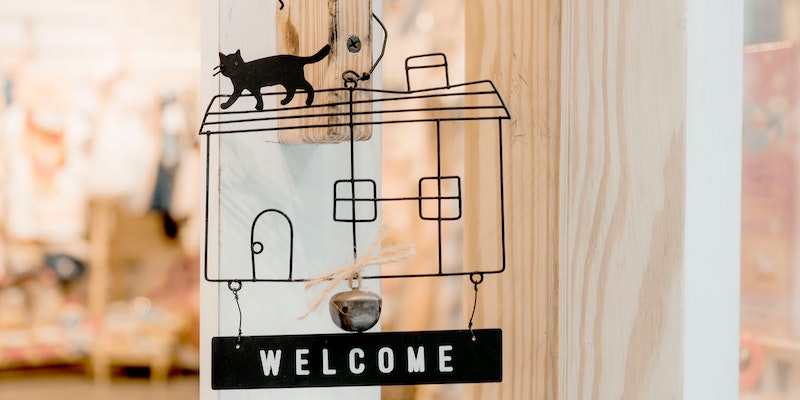An Overview of the Good Neighbor Next Door Initiative
Triston Martin
Oct 27, 2023
The unique Good Neighbor Next Door (GNND) housing program benefits certain professionals. This HUD-backed program heavily discounts homes in certain areas. How does it work, and who helps? Let's begin.
Overview of the Good Neighbor Next Door Program
The Good Neighbor Next Door (GNND) program is a hope for communities that require a boost. Providing a significant 50% discount on homes in specific revitalization zones offers a golden opportunity for certain professionals. However, there's a condition attached: those who avail of this offer must reside in the acquired property for at least three years.
This program primarily focuses on
Law enforcement officers
Police keep communities safe by upholding the law. Teachers (pre-K to 12th grade): Educators shape the future by teaching youth values and knowledge.
Firefighters
Their bravery in danger protects communities from unforeseen calamities.
Emergency medical technicians (EMTs): EMTs are the first responders in medical emergencies, playing a vital role in saving lives.
The GNND program's mission is clear-cut.
To promote homeownership among these pivotal professionals and simultaneously stimulate community growth and development. By doing so, it not only provides housing solutions but also ensures that communities thrive with the presence of these dedicated professionals.
Origins of the GNND Program
The GNND program began with HUD initiatives. The department launched this program to address the needs of impoverished communities. The goal was to revitalize these areas by housing public servants.
The Good Neighbor Next Door program reviews is not just about providing homes but building more robust, resilient communities. By ensuring that public servants, who are integral to the community's well-being, reside within these areas, the program aims to create a positive ripple effect. Their presence ensures safety and education and acts as a catalyst for community growth.
Furthermore, the good neighbor following door program reviews have often highlighted its transformative impact on neighborhoods. Focusing on areas that need economic and social upliftment, the program has been instrumental in changing the narrative for many communities.
Financial Benefits of the GNND Program

The Good Neighbor Next Door (GNND) program isn't just about making homeownership accessible; it's about making it affordable. Those who participate in this initiative stand to gain various financial benefits that can significantly ease the homeownership journey.
FHA-Insured Mortgage
One of the standout features of the GNND program is the access to an FHA-insured mortgage. What does this mean for potential homeowners? Eligible participants can secure a mortgage with a down payment as low as $100. This drastically reduces the upfront costs associated with purchasing a home.
Incorporating Repair Costs
Homes, especially in revitalization areas, might need some touch-ups or repairs. The GNND program recognizes this and allows participants to include repair costs in their mortgage. This is akin to the benefits an FHA 203(k) loan provides, ensuring homeowners don't have to bear these costs out of pocket.
Profit from Sale
The GNND program has a residency requirement but is not without its perks. After living in the property for the stipulated three years, homeowners have the freedom to sell their property. The best part? They can pocket all the profits from the sale. This can be a significant financial boost, especially if the property's value has appreciated over the years.
Eligibility Criteria for the GNND Program
The Good Neighbor Next Door program reviews is a fantastic initiative, but knowing if you qualify is essential. The program has set specific criteria to ensure it benefits the right individuals and, in turn, the communities they serve.
Professional Eligibility
GNND is designed for community development and safety professionals. This includes police, pre–K–12 teachers, firefighters, and EMTs. Any community relies on these professionals for safety, education, and well-being.
Employment Commitment
It's not just your job but your dedication. To qualify, people must promise to stay in their jobs for a year after the property closes. This keeps communities using their services.
Residency Requirement
GNND builds communities through residency. Participants must agree to live in the purchased property for at least three years. This promotes community development and prevents program abuse.
Property Ownership Restrictions
To ensure fairness, the program restricts property ownership. Individuals cannot own any other property when they make an offer under the GNND program. Additionally, they should not have owned any property for the year before their offer.
Finding Eligible GNND Homes

The first step for those interested in the Good Neighbor Next Door (GNND) program is identifying suitable properties. The HUD Home Store is the primary platform where potential buyers can explore available homes. This platform allows individuals to filter properties based on state and price range. The inventory of homes under the GNND program can be limited. Moreover, these homes' availability might fluctuate weekly, reflecting the dynamic nature of real estate listings.
The Good Neighbor Next Door program reviews is designed to cater to specific professionals, and the properties listed are in areas that need their expertise the most. Therefore, while the choices might seem limited, remember that each listed home represents an opportunity to make a difference in a community. Regularly checking the HUD Home Store can increase the chances of finding the perfect home that aligns with the program's criteria and the buyer's preferences.
Application Process for the GNND Program
- Before diving into the home search, it's crucial to understand your financial standing. Obtaining a mortgage preapproval letter is a proactive step that showcases your seriousness as a buyer. It clarifies your budget and gives you an edge in competitive bidding. FHA loans aren't required but offer benefits like a $100 down payment.
- The GNND program has specific protocols in place. One of them is that only brokers affiliated with HUD can submit bids for HUD homes. This ensures transparency and adherence to the program's guidelines. Connect with a HUD-registered broker via the HUD Home Store to streamline your home-buying journey. These professionals are well-versed with the good neighbor next door program and can guide you effectively.
- With your broker's assistance, navigate the HUD Home Store to pinpoint a property that fits the GNND program's criteria. Remember, the essence of the GNND program is to uplift communities, so each listed property is more than just a home; it's an opportunity to contribute positively to a neighborhood.
- The next step is to make an offer after zeroing in on a property. With the guidance of your HUD-affiliated broker, submit a bid for the property. While the bid should reflect the property's total purchase price, the GNND program's beauty is that eligible participants will only shoulder half of that amount. Additionally, a deposit, ranging from $500 to $2,000, accompanies the bid. The selection process for bids is unique, with HUD employing a lottery system to ensure fairness.
- Winning the bid is exhilarating, but it's just the beginning. The subsequent phase involves meticulous paperwork to ensure a smooth transition of property ownership. Prepare for the closing process, which consists of finalizing the mortgage, understanding the terms of the GNND program, and setting the foundation for your new journey as a homeowner.







